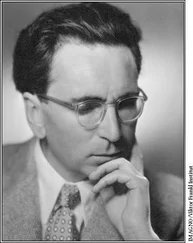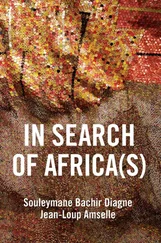Elizabeth was the kind of woman who always looked as if she had just stepped out of the pages of a fashion magazine: Her dresses were fitted, her jewelry took the form of tiny insects, and her hats sprouted feathers the likes of which Bacon had seen only in the movies. Her violet eye shadow and colorful rouge only enhanced her childlike complexion, reminding Bacon of a little girl trying to be like her mother by stealing and applying globs of her makeup. Bacon was always touched by this curious spectacle; in that inharmonious combination of lust and innocence, vanity and naïveté, he saw evidence of the sensitivity his fiancée hid behind her haughty appearance.
Aside from Elizabeth’s undeniable beauty and artistic talents (she was a student at an art academy in New York), there was something else about her that appealed to Bacon’s mother: her aristocratic lineage. Elizabeth, she explained to her son, was the only daughter of a rich banker from Philadelphia whose greatest desire was to see his daughter happy. When he saw her for the first time at a French restaurant on Fifth Avenue, Bacon knew that she would play an important role in his life—though not for any of the qualities his mother had mentioned. It was the tiny adolescent figure, the cascade of curls that tumbled out from under her hat, and the way that, in spite of her well-cultivated manners, she couldn’t help twisting and untwisting her fingers in her lap. Bacon had always appreciated that rather aggressive quality found in many spoiled girls, for he sensed it was simply their way of masking their inability to solve the problems of day-to-day life. In short, he liked Elizabeth because she was the opposite of Vivien.
That afternoon, somewhere between the lobster and the chocolate cake, Elizabeth made a confession—that is, she recited the words she assumed a liberal scientist like Bacon would want to hear from a girl: She was a painter. She spoke eloquently of the importance of art and freedom, and explained that money, to her way of thinking, was simply one among many means to happiness. The significance of her declarations was largely lost on Bacon—the champagne they drank took care of that—and Elizabeth worked hard to soften her sharp, grating voice into something closer to sensual. Meanwhile, Bacon’s mind was mainly focused on discerning the shape of her breasts beneath the cherry-colored blouse and the fine European lingerie that (he was certain) lay beneath it. He never once lifted his gaze to meet her eyes, but Elizabeth continued on, undeterred, with her detailed lecture on the history of art, convinced that a promising young scientist like Bacon couldn’t help falling in love with a woman of such great intellect.
One day, Bacon grabbed her hand and attempted to kiss her in the middle of the street. Elizabeth, employing her family’s old husband-catching technique, slapped him hard on the cheek, hard enough to call the attention of several passersby. She then told him to behave like a gentleman, and asked him to please walk her home. Once again, the tactic proved highly effective: Dazzled by this flash of temper, Bacon asked when he could see her again. After considering the idea for a few moments, Elizabeth accepted. From then on, they averaged about two dates a week, generally on Saturday mornings and Sunday afternoons, although almost an entire month went by before she would allow Bacon’s lust-filled lips to settle upon her own tightly pursed pair.
In theory, Bacon despised Elizabeth’s games, and he continued sleeping with Vivien about three times a week, though without the slightest trace of any sort of courtship ritual. Yet he nevertheless remained enthusiastic about the progress of his relationship with Elizabeth, precisely because she refused to let him touch her. In one of nature’s absurd paradoxes, he would dream of Elizabeth’s tiny body while savoring the largesse of Vivien; he yearned for Vivien’s silence as he endured Elizabeth’s insufferable discourses.
Bacon knew that the laws of civilized society—inspired by the laws of classical mechanics—were inflexible. Sooner or later, his double life would have to end; he could have only one of them. And it would have to be Elizabeth. His mother, his friends, his professors, his fellow graduate students—none of them would forgive him if he abandoned the delightful young lady who they always assumed would become his wife for a cafeteria worker. Resigned to a fate that seemed beyond his control, Bacon went out and bought a ring with a tiny blue diamond and gave it to Elizabeth one windy evening in March of 1942, beneath the moonlight, as prescribed by the laws of romantic love.
They hadn’t settled on a wedding date, but from that day forward, Elizabeth did little more than visit bridal shops to study the endless array of available wedding dresses. Each time she saw her fiancé she would describe, with the very same patience she dedicated to her lectures on surrealism and the avant-garde, the complicated floral patterns of each model, since she found herself incapable of deciding on one single gown. The decision, Bacon quickly realized, was going to be as agonizing as determining the quadrature of a circle.
Aside from Elizabeth’s new obsession with gowns, fabrics, veils, and laces, another idiosyncrasy came to light during this prewedding period: her ever-increasing jealousy. Marriage, to Elizabeth, was nothing less than complete and total surrender. Soon she began demanding more frequent visits from him. In addition to his usual Saturday and Sunday trips to New York, he now found himself traveling there several days a week, often to be with her for no more than a few hours. Unfortunately for Bacon, these trips offered no opportunity for increased intimacy. Bacon, then, was reduced to coming and going at Elizabeth’s behest, like a yo-yo in the hands of a child.
As a kind of punishment for his disobedience, Elizabeth began to demand, sometimes with shrill cries and other times with gentle caresses, a detailed report of his daily activities. “Where did you go?” “Why?” “With whom?” were the three basic questions, the tenets of a belief system she practiced with the fervent devotion of the recent convert. Any sudden observation, pointless comment, or unexpected turn of conversation would instantly become the motive for an interrogation that could last hours. She acted as though any activity that didn’t specifically focus on her represented a crime against their love. As far as Elizabeth was concerned, Bacon’s schedule of conferences, classes, and work assignments at the institute were little more than transparent alibis aimed at hiding his infidelity.
The most surprising thing of all was that Bacon responded to Elizabeth’s inventory of complaints with sweet nothings and apologies. Over and over again during those months he would ask himself exactly why he was subjecting himself to this military discipline which, in the end, was going to kill his spirit. The answer, alas, was simple: guilt. He knew that in spite of her temper tantrums, Elizabeth trusted him. And he also knew that her suspicions—though exaggerated at times—were not entirely unfounded. As he had explained to Professor Von Neumann, Bacon tried to maintain the relationship as it was by drawing Elizabeth’s attention to such banal topics as his oppressive job, so as to prevent her from inferring the real reason for his occasional absences. But gradually he learned that a man with a double life is a man condemned—not simply to lying but to inventing and defending half-lies, as if his world could be divided into two separate spheres, incompatible and complementary at the same time.
In late March of 1942, Von Neumann informed Bacon that Kurt Gödel, the eminent mathematics professor, would be coming to the institute in a few days to present one of his recent papers to a private audience. Unfortunately, this was to take place on the same day that Bacon had promised Elizabeth they would travel to Philadelphia. When Bacon told her, he explained the importance of the event and assured her they would make the trip the following month. Elizabeth, however, simply told him to go straight to hell. This wasn’t the first time she had threatened him—in fact, she was usually the one who would run back to him. But Bacon resolved not to give in this time. He was too determined to meet Gödel to let one of his fiancée’s idle threats get in the way. In fact, he thought, this might just be the perfect excuse to take a rest from her for a few weeks, to be alone and to think about his future.
Читать дальше












